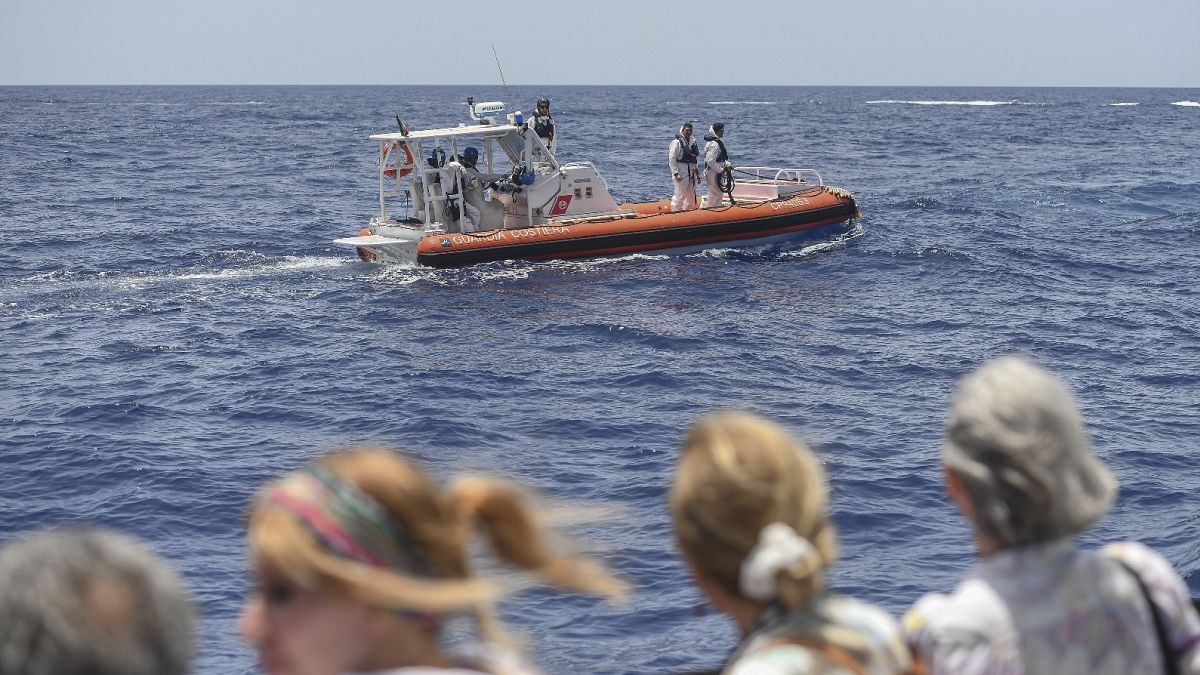There is little cooperation between national coast guard services and NGOs.
The latest tragic shipwreck off the Greek coast, one of the worst in European history, once again reignited the debate as to whether the EU is doing enough to prevent loss of life of migrant people at sea.
Currently, each coastal or island country is responsible for its Search and Rescue zone in the Mediterranean Sea, where it is obliged to initiate operations to rescue boats in distress if needed by involving private ships.
As the EU member state in charge of the rescue is also the one in charge of disembarkment and processing possible asylum requests, national coast guards are often suspected of waiting as much as possible before taking action.
According to media reports, for example, Greek authorities waited for a long time before intervening last week, probably hoping that the boat would continue on its course to Italy, even if it was already in distress.
The European Union has limited competencies in this kind of operation. The bloc's external border agency, Frontex, provides help through aerial surveillance and could assist in a rescue if ordered by the responsible national authority, but cannot carry out a rescue independently.
Many claim that a European rescue mission in the Mediterranean would help to improve the situation.
But the reform of the EU migration policy does not foresee that kind of thing, as Pietro Bartolo, a member of the S&D group in the European Parliament, deplored.
Bartolo was part of a delegation from the Parliament that this week visited the Italian island of Lampedusa, geographically closer to Africa than to Europe, in order to observe how the activity of Search and Rescue in the sea is carried out.
“At the beginning of the legislature, the first thing I asked for was a resolution providing for a European sea search and rescue service, obviously in coordination with the member states of the first port of call," Bartolo told Euronews.
"However, after six months of work we took it to the plenary, where, to my great regret, we lost by just two votes. I was very sorry about this, but surely Europe must do something," he added.
Private entities are also carrying out search and rescue operations in the Mediterranean Sea, even if on a smaller scale compared to national services. According to Bartolo, NGOs carry out about 10% of rescue operations in the Central Mediterranean.
But some governments have been accused of attempting to curtail or even ban their operations. Italy for example, is forcing them to dock after a single rescue and assigns ports of disembarkment very far from the places where rescues happen.
“NGOs are being criminalised so much when instead they could work together to try to save as many people as possible. But there is an incomprehensible hostility towards them. I do not understand, also because, despite all the efforts that are made to save these people, often there continue to be shipwrecks and people still continue to die," Bartolo said.
The Italian Home Affairs Ministry says NGOs' work constitutes a "pull factor" that encourages smugglers and migrants to set sail. EU Commissioner Ylva Johansson however told Euronews last week that she appreciates their work to save lives.
